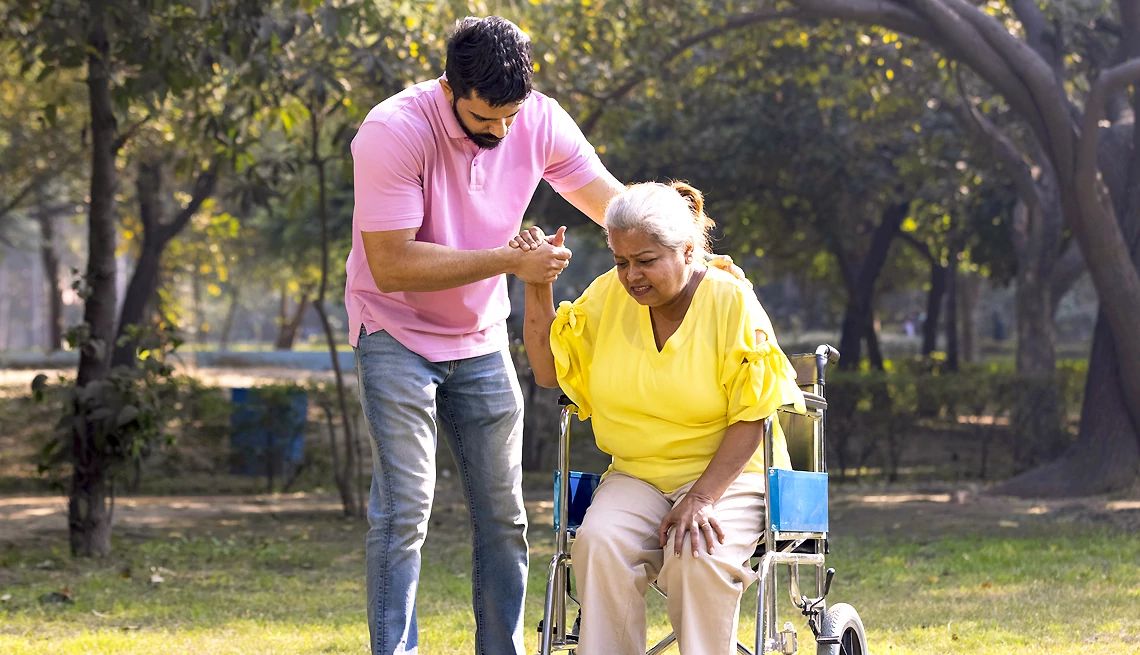AARP Hearing Center


Like many 21-year-olds, Vira loved her grandparents but wasn’t always thrilled to be one of their caregivers. Although they didn’t need much help, there were times she planned to see friends when her parents “volunteered” her to instead drop off a meal at her grandparents’ apartment and spend time with them. Vira realized she had little choice. Though she was born and raised in the U.S., she knew her grandparents and parents, naturalized citizens from Ukraine, held tightly to their traditional cultural value of honoring and caring for older relatives. It went without saying they expected her to do the same.
Vira’s family is among the increasing numbers of American caregiving families in which care recipients and others are steeped in the beliefs and practices of their origin countries in Eastern Europe, South Asia, Central America, West Africa, the Caribbean and elsewhere. The U.S. Census Bureau reported in 2022 that the population of foreign-born individuals had grown to 46.2 million from 40 million in 2010, an increase of more than 15 percent. The number of these foreign-born individuals who are older adults is anticipated to rise from more than 8 million in 2020 to nearly 20 million by 2050. Vira felt bad about canceling plans at the last minute with her friends but knew that they, too, struggled to balance being a carefreeyoung American with being the caregivers their families required.
Research suggests that immigrant families caring for an older adult, such as Vira’s, have strengths that are distinct from those of other caregivers. Many immigrant families, especially Hispanics/Latinos, are said to be guided by “familism,” the cultural value that emphasizes loyalty, close relationships and a high degree of support among family. Family needs are often prioritized over an individual’s wants, and members are expected to serve as caregivers for relatives in need. Some immigrant families face challenges with caregiving because of lack of knowledge about available support services or lack of comfort with using them because of their limited English proficiency.
How can immigrant families uphold their old-country values of caring for their oldest members in a different American cultural context and system of care? Here are some ideas.
Seek care that is culturally competent
Many health care and social service providers undergo training in “cultural competency” to understand the importance of cultural values in shaping immigrant families’ approaches to health, health care and caregiving. With that training, providers should be better able to tailor interviews and care plans to those values. Without it, providers may apply the same recommendations to everyone, regardless of whether they fit with a family’s beliefs.
You should be able to seek care in the language that you and your care receiver prefer to help you both fully participate in the service planning. If there are no, say, Ukrainian-speaking providers in your community, then your providers should use an in-person or telephonic interpreter service. Providers need to be cognizant of your cultural values and offer plans that respect them. For instance, they should offer home-delivered meals that meet your cultural or religious dietary preferences and restrictions. And they should seek to understand folk remedies that your family members may have relied upon for hundreds of years to alleviate pain, depression or other ailments.































































More From AARP
How Caregivers Can Use Virtual and Augmented Reality
New technology can offer relaxation and healing without leaving homeHow to Keep a Loved One With Cognitive Decline Safe From Scams
Key steps to protect vulnerable family members’ finances in an age of rampant fraudWhy It’s Critical to Have a Backup Family Caregiving Plan
If the primary caregiver dies or becomes incapacitated, who will take care of your loved one?Recommended for You